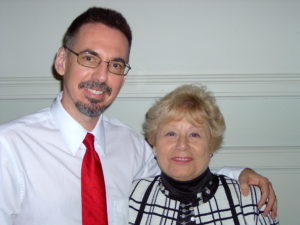The most important union you’ve never heard of
On October 8, I was fortunate enough to attend the annual convention of the National Association of Catholic School Teachers (NACST) as a guest. The teachers were interested in learning more about the Catholic Labor Network, and after offering a few words on our work I was kindly invited to witness the proceedings.
The NACST is a union of Catholic schoolteachers with nearly 4,000 members. Wait a minute, you are probably asking… didn’t the supreme court rule in NLRB v. Catholic Bishop (1978) that the National Labor Relations Act didn’t apply to Catholic elementary and high schools because of the first amendment?
Well, yes. But the court didn’t rule that the teachers couldn’t have a union, just that the Labor Board couldn’t get involved. In 1986, America’s bishops affirmed that, Supreme Court jurisprudence notwithstanding, we answer to a higher law. Catholic social teaching required that “all church institutions must fully recognize the rights of employees to organize and bargain collectively with the institution through whatever association or organization they freely choose.” Hundreds of Catholic schools bargain with unions representing their teachers.
The local unions of the NACST stretch from Massachusetts to Missouri. They include major school systems such as those in Buffalo, Philadelphia, Pittsburgh and St. Louis, and single-school bargaining units that dot the Northeast and Midwest. Their members are deeply committed to their Catholic faith. They must be: wages and benefits are substantially lower than those offered in the public schools. At a surprising number of Catholic schools, teacher salaries start below $25,000 per year. These teachers have chosen significant material sacrifice to deliver our children a quality education rooted in our faith.
Indeed, the union was established by teachers who found it difficult to reconcile their faith and commitment to Catholic education with the politics of the national teachers’ unions. Although powerful unions like the National Education Association (NEA) and the American Federation of Teachers (AFT) could provide resources and support, they are firmly opposed to tuition voucher programs and have adopted positions on social issues (such as contraception and abortion) putting them at odds with Catholic teaching. In 1978, a group of local unions representing Catholic schoolteachers broke away from the AFT to form the NACST.
Without the protection of the National Labor Relations Board (NLRB), this was no small matter. The officers of NACST locals are working teachers who pursue union business on their own time; without the resources of a large union like the AFT or NEA they lack powerful political friends or large strike funds. For survival they rely in large measure on their employer’s fidelity to Catholic social teaching. If a bishop or school system decides to bust the union – as happened in the Diocese of Scranton, in 2006 – they have few tools at their disposal to resist.
Catholic schools may not have the resources that public school districts do, but they can certainly recognize their employees’ right to organize and bargain collectively. Surely that is the least we owe our teachers.



